Publications
Articles, publications, books, tools and multimedia features from the U.S. Institute of Peace provide the latest news, analysis, research findings, practitioner guides and reports, all related to the conflict zones and issues that are at the center of the Institute’s work to prevent and reduce violent conflict.
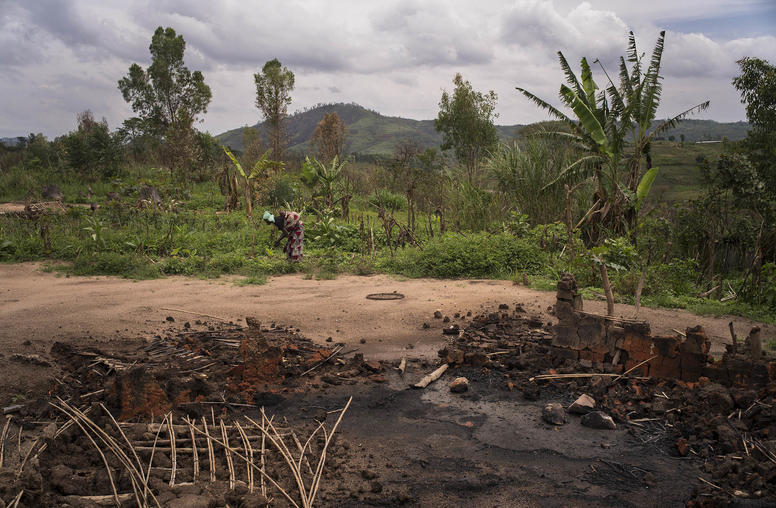
Saving Congo’s Forests Means Changing ‘Law Enforcement’
The Congo Basin rainforests, the world’s second largest, form the planet’s single greatest “carbon sink,” absorbing the atmospheric carbon dioxide that is overheating our planet. Yet this crucial front line against climate change is threatened by illegal and industrial logging, mining, oil and gas concessions and ongoing warfare in eastern Democratic Republic of the Congo (DRC). To save the rich and unique ecosystems of the Congo Basin forests, policies are needed to stop destructive resource exploitation and ongoing violence. This includes devising more effective, holistic approaches to upholding conservation laws in national parks and other protected areas.
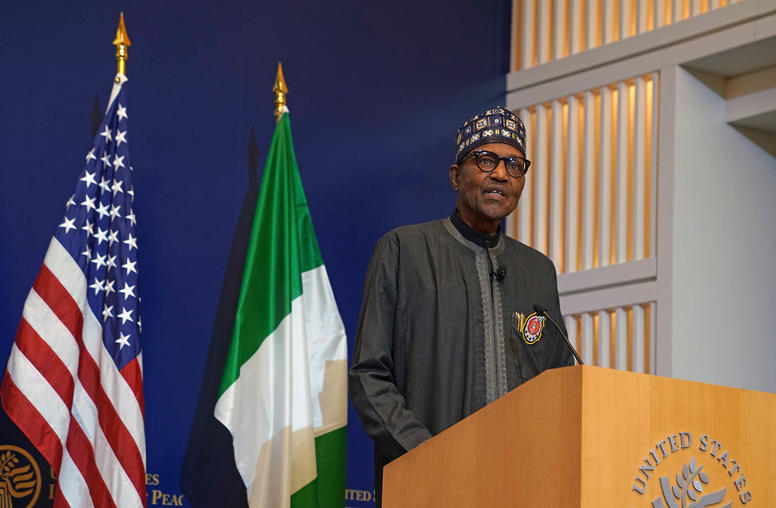
Nigeria’s Buhari Vows a Credible Election to Bolster Democracy
Nigerian President Muhammadu Buhari says he expects a credible election to choose his successor in just 10 weeks. A credible, publicly accepted result and a peaceful transfer of power could help consolidate democracy in Africa’s most populous country following democratic setbacks in the region, notably seven coups in 26 months in the Sahel and West Africa. Buhari, first elected in 2015, is completing his second term in office, the constitutional maximum, and is to hand power to his elected successor in May — an extension of democracy that Buhari has said he wants to ensure as part of his legacy to the country.
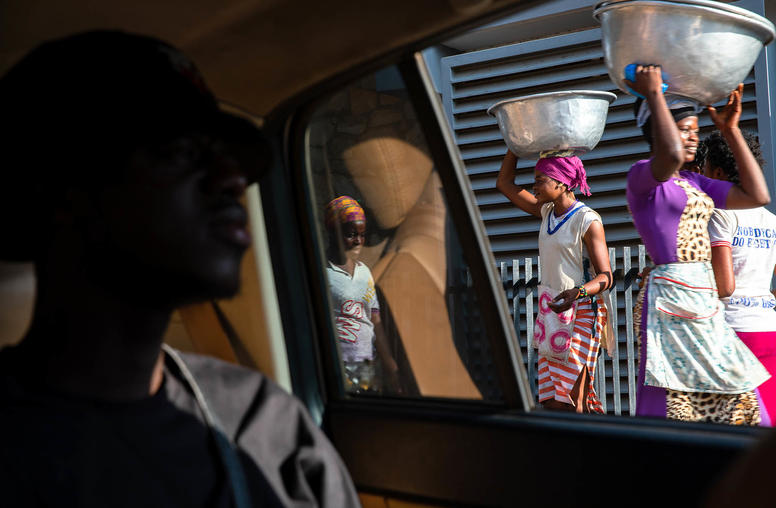
Coastal West Africa Senior Study Group Final Report
The countries of Coastal West Africa are currently facing significant challenges to peace and security as extremist violence spills over from the neighboring Sahel region. Attacks in 2022 in the northern parts of Benin, Côte d’Ivoire, and Togo illustrate the immediacy and gravity of the threat, and governments across the subregion are grappling with protecting fragile communities in the north, addressing porous borders that facilitate attacks from neighboring states, and building the capacity of security forces to address the threat.
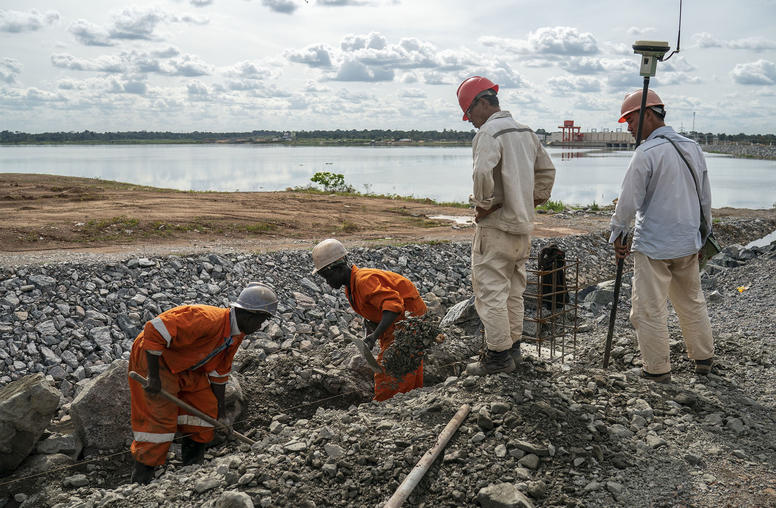
In Africa, U.S. Should Focus More on Democracy, Less on China
Even as the United States draws lessons from its unsuccessful, 20-year effort to build a sustainable peace in Afghanistan, it is shaping policies to engage the political and economic rise of Africa. Both the shortcomings in Afghanistan and the opportunities of Africa underscore the imperative of building policy on a full appreciation of local conditions. Yet on Africa, China’s growing presence has seized Americans’ political attention, and scholars of African politics say this risks distracting near-term U.S. policymaking. A requisite for U.S. success in Africa will be to focus on Africans’ desires—which include an ambition to build their futures by democratic means.

Oge Onubogu on Democratic Concerns in West Africa
While West African countries present “some of the steepest declines in democracy,” USIP’s Oge Onubogu says there is “still an overwhelming support” for democratic governance among citizens in the region, which “presents a key opportunity for engagement between African leaders and this administration.”
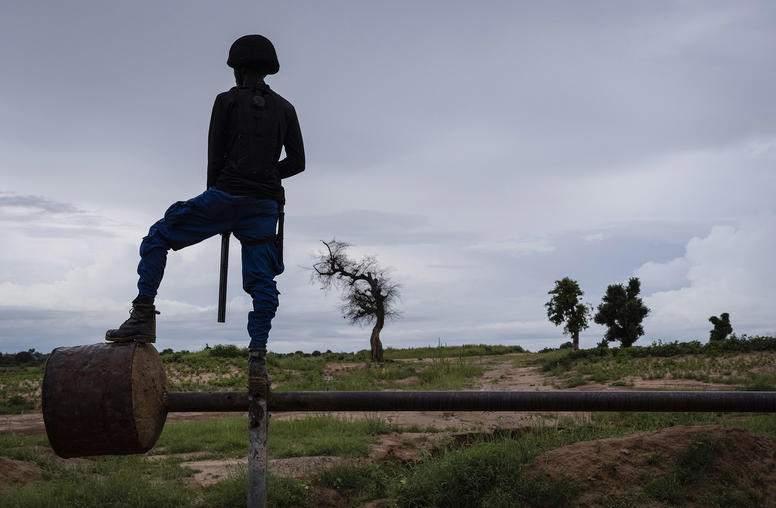
Six Alternative Ways to Measure Peace in Nigeria
When measured by the death toll, Nigeria seems beset by violence. By some accounts, the COVID-19 pandemic has made experiences of violence even more common — notably, Nigeria recorded a 169% increase in abductions between 2019 and 2020. While quantifying violence is relatively straightforward, defining what peace means to ordinary Nigerians has been largely overlooked, even if such definitions may be more meaningful. By exploring more nuanced understandings of peace, how these vary between and across communities, and finding which indicators of peace are most valued, peace might be better pursued. We went in search of how people in the states of Bauchi, Kaduna, Nasarawa and Plateau define peace. Here are six of our most important findings.
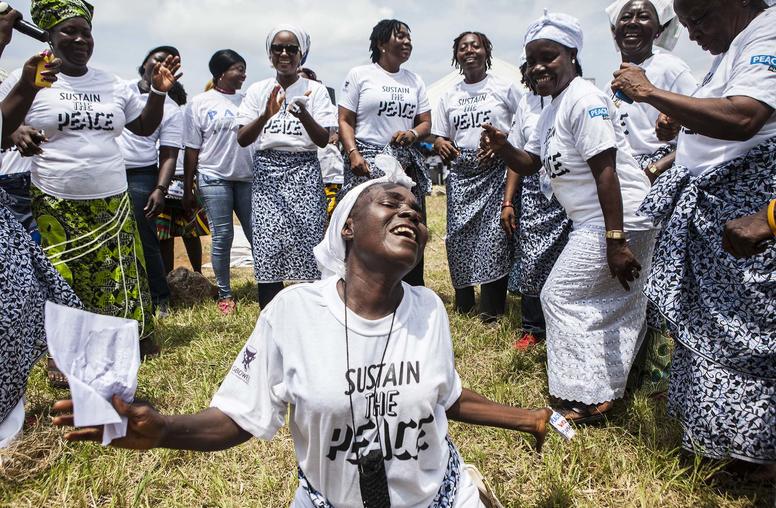
¿Cómo y cuándo puede el poder popular promover la paz durante guerras civiles?
A pesar de una breve pausa debida a las restricciones de la COVID-19, en los últimos años hemos visto una de las mayores olas de resistencia no violenta a nivel mundial y 2019 fue catalogado como "el año de la protesta". Estos movimientos – desde Myanmar hasta Colombia y la India – se centran en gran medida en la lucha contra el autoritarismo o en subsanar injusticias sociales. Menos difundido y discutido es el papel de la acción no violenta en medio de las guerras civiles y los procesos de paz. La no violencia estratégica puede fomentar la paz también en estos contextos, pero el momento y la táctica son la clave del éxito.

Comment—et quand—le pouvoir populaire peut faire avancer la paix dans un contexte de guerre civile
Malgré une brève accalmie due aux restrictions liées à la COVID-19, ces dernières années ont été témoins de l'une des plus grandes vagues de résistance non-violente mondiale de l'histoire récente, 2019 étant largement surnommée “l'année de la protestation.” Ces mouvements – du Myanmar à la Colombie en passant par l'Inde – sont largement axés sur la lutte contre l'autoritarisme ou la réparation des injustices sociales. Moins annoncé et discuté est le rôle de l'action non-violente dans les contextes de guerres civiles et des processus de paix. La non-violence stratégique peut également favoriser la paix dans ces contextes, mais le timing et les tactiques sont la clé du succès.

How—and When—People Power Can Advance Peace Amid Civil War
Despite a brief lull due to COVID-19 restrictions, the past few years have witnessed one of the largest waves of global nonviolent resistance in recent history, with 2019 widely being dubbed “the year of the protest.” These movements — from Myanmar to Colombia to India — are largely focused on pushing back against authoritarianism or redressing social injustices. Less heralded and discussed is the role of nonviolent action amid civil wars and peace processes. Strategic nonviolence can foster peace in these contexts as well — but the timing and tactics are key to success.
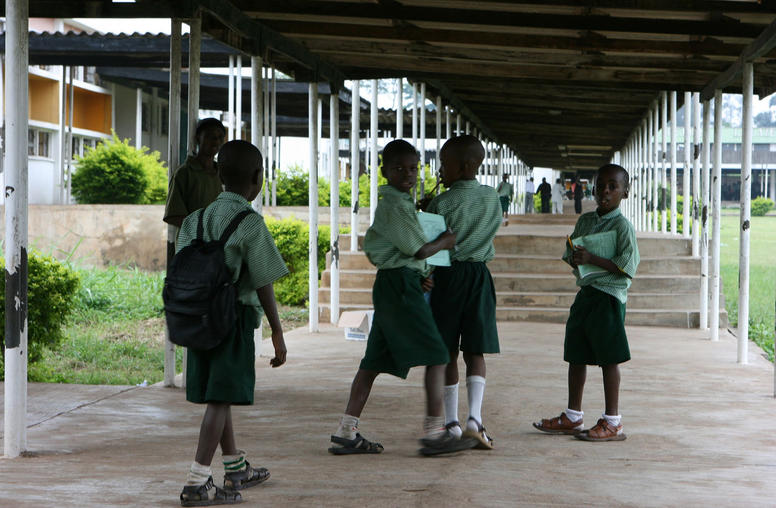
How Mass Kidnappings of Students Hinder Nigeria’s Future
This week’s latest mass kidnapping of Nigerian schoolchildren underscores that the crumbling of human security in Africa’s most populous nation is worsening a deeper impairment, hollowing out Nigeria’s education system to create a “lost generation” of youth across much of the country. Alarmingly, one in five of the world’s out-of-school children is Nigerian. As Nigerian and international policymakers focus on the immediate crises—of kidnappings, Boko Haram’s extremist violence, and conflict between farming and herding communities—they must urgently rescue and buttress the country’s damaged education system. Reducing violence and achieving development in Africa will depend on an effective strategy for doing so.